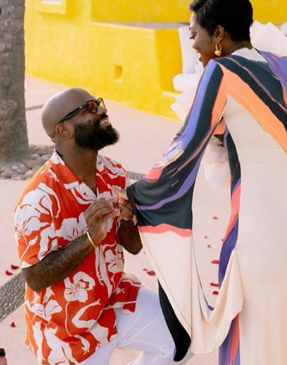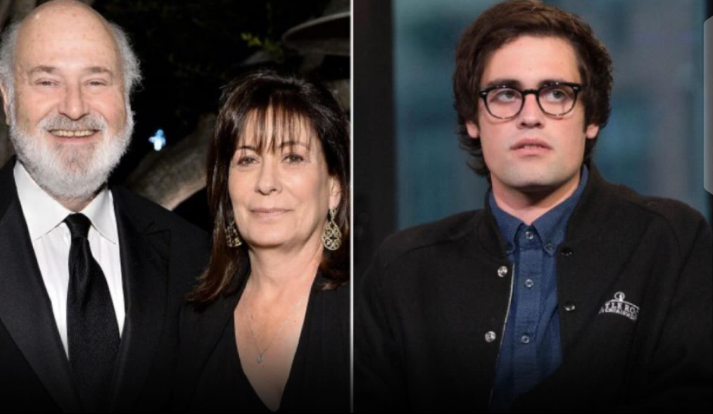
“I'm Not That Influential”: Fisayo Longe Fires Back at Claims She Discouraged Marriage Before Getting Engaged Herself

In a fiery and unapologetic response that has taken social media by storm, Nigerian businesswoman and influencer Fisayo Longe has addressed criticism from a woman who accused her of discouraging young girls from getting married—only to turn around and get engaged herself. The fashion entrepreneur, who is known for her bold opinions and successful brand, Kai Collective, responded through a series of sharp statements that quickly gained traction online.
The controversy began when Longe’s mother relayed a comment made by a disgruntled woman. According to the mother, the woman was upset because her daughter had been influenced by Longe’s previous skeptical takes on marriage. Now that Longe has announced her engagement, the woman felt betrayed on behalf of her daughter. But Longe didn’t let the comment slide. Instead, she clapped back with her signature mix of sass, logic, and brutal honesty.
“My mum: a woman told me that she's upset that you influenced girls like her daughter not to get married and then you went and got engaged,” Longe wrote, narrating the exchange in a post. Her reply to that was swift and cutting: “Me: Does her daughter make several million dollars a year?” When her mother admitted she didn’t think so, Longe concluded, “Okay then I’m clearly not that influential to her daughter.”
What might have ended there instead escalated into a full-on takedown of what Longe described as a lack of critical thinking and accountability. In her post, she challenged the logic of blaming an internet personality for a deeply personal life choice like marriage, especially when the accused “influencer” has simply been open about her doubts on the institution, not waging a campaign against it.
“Critical thinking skills at an all time low,” she wrote. “If you've raised the sort of daughter who based such a huge life decision on a stranger on the internet expressing her doubts about marriage (which still very much exist by the way loool... but let's never talk about that again because most of you don't deserve any type of nuanced thoughts), then you might want to check your parenting skills.”
Her unapologetic stance drew both applause and backlash from netizens, sparking heated debates across platforms. While some praised her for speaking her truth and refusing to be held responsible for the choices of others, others felt she was too dismissive of the responsibility that comes with influence.
Many of her supporters pointed out the absurdity of blaming a stranger online for one’s life decisions. “It’s not Fisayo’s fault your daughter can’t think for herself,” one Twitter user commented. “She’s not a therapist or a life coach. She’s a businesswoman who shares her opinions. That’s it.” Others noted that Longe never explicitly told anyone not to get married but rather expressed her own personal hesitations and experiences—something that should be allowed without fear of hypocrisy accusations.
Critics, however, felt that Longe’s tone was unnecessarily harsh, especially toward the concerned mother. Some argued that as someone with a large following, Longe should be more mindful of the impact her statements can have on impressionable young women. A few also suggested that her engagement contradicted her previous criticisms of marriage, interpreting it as a betrayal of her audience’s trust.
But Longe made it clear that she was not interested in appeasing anyone. “I'm actually not a nice girl so let's all respect ourselves if we don't want disrespect,” she concluded in her post. The finality of her words echoed a boundary that many public figures have begun drawing in the age of parasocial relationships—where audiences expect influencers to live by the opinions they once shared, as if those opinions are legally binding contracts.
At the heart of the conversation lies a larger cultural tension: the expectation that women, especially those with platforms, must fit into neat, predictable boxes. If a woman questions marriage, she’s branded a feminist rebel or a threat to traditional values. If she changes her mind or evolves, she’s accused of hypocrisy. The space to grow, to re-evaluate, or simply to live life on one’s terms is often denied to public figures, especially women, who are either idolized or criticized without much room for nuance.
Fisayo Longe’s post is more than just a comeback—it’s a commentary on influence, responsibility, and the strange expectations that come with visibility. Her words challenge the idea that public figures owe their audiences a permanent allegiance to past opinions. She reminds us that people are allowed to change their minds, and more importantly, that the decision to marry—or not—is one that should come from deep personal introspection, not external voices, no matter how confident or convincing.
As the debate rages on, one thing is clear: Fisayo Longe is not backing down. She remains a woman in control of her own narrative, refusing to be boxed in by societal expectations or silenced by critics. Whether you agree with her or not, her stance has sparked an important conversation about personal accountability, the nature of influence, and the right to evolve publicly without being crucified for it.
In an age where influencers are both revered and reviled, Longe’s fiery response serves as a reality check. Influence may be powerful, but it doesn’t replace personal judgment. And for Fisayo, her engagement doesn’t cancel her past reflections—it simply adds a new layer to the complex, evolving story of a woman who continues to live life on her own terms.


